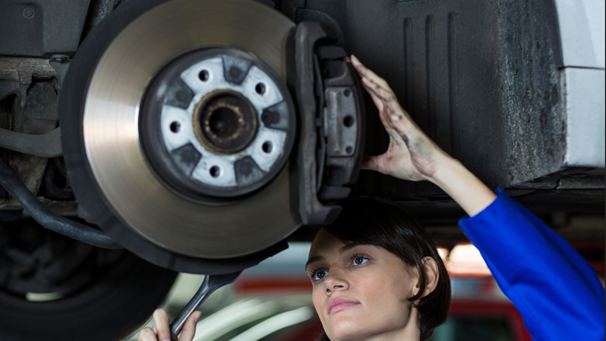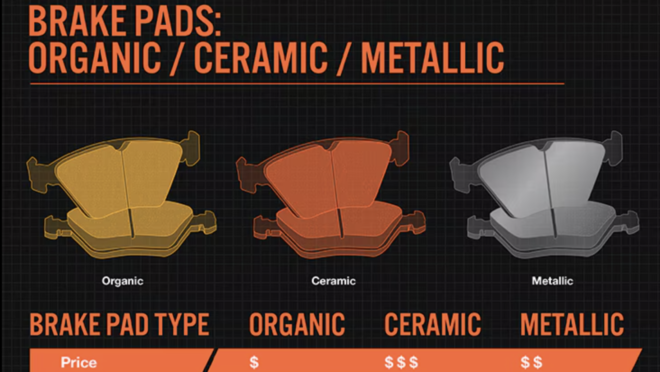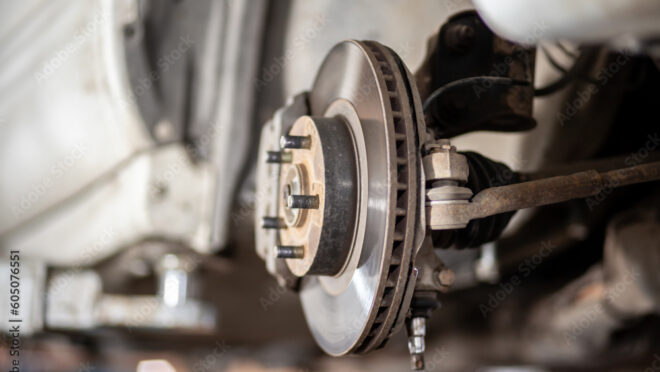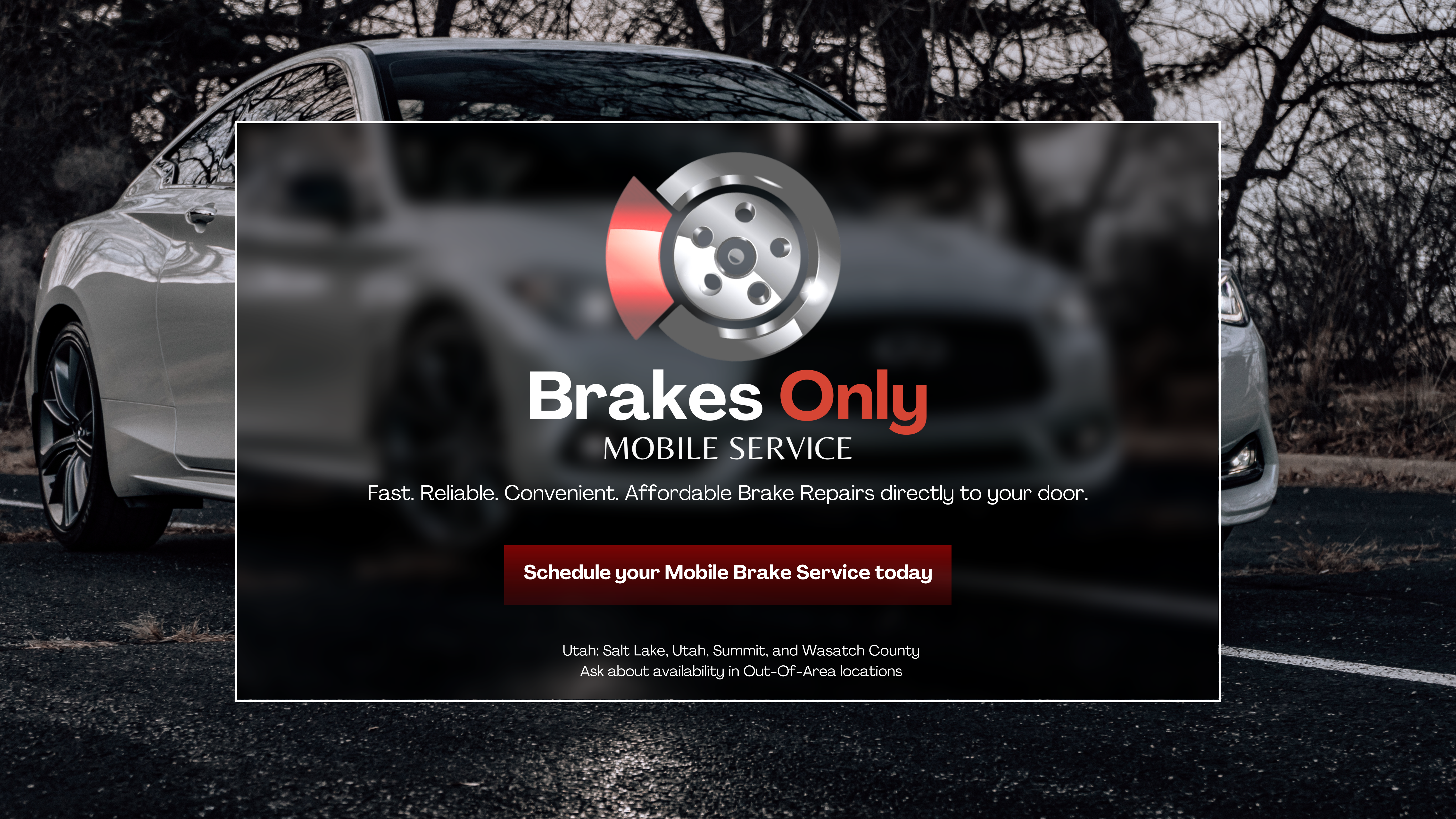Worried about that squeaking noise when you brake? You’re not alone! Did you know that in Utah, a significant percentage of road accidents are related to brake system failures? It’s an alarming statistic! Brake problems are more common than you think and can become a serious headache if not addressed in time.
But did you know that you can solve these problems without having to go to a workshop? In Utah, there are mobile brake repair services, where the mechanic comes to you. It’s that easy! In this article, we will answer your most frequently asked questions and explain everything you need to know about this topic.
Schedule an appointment today! Click Here
Why choose mobile brake repair?
Driving safety comes first. A faulty brake system can put your life and the lives of others at risk. That’s why it’s important to keep your brakes in top condition. With a mobile repair service, you can ensure that your brakes are always ready to go when you need them, without having to worry about a thing.
Who wants to spend hours in a workshop waiting? That’s why mobile brake service is so in demand. With mobile service, you save time and avoid stress. Additionally, in Utah, there are certified technicians who have the necessary equipment to perform any type of repair.
How do mobile brake repair services work?
Mobile brake repair services work in the following way: you request the service, a specialized technician comes to your location and performs a complete diagnosis of your brake system. This includes checking the pads, rotors, hoses, and brake fluid.
Once the problem has been identified, they will present you with a detailed estimate and explain the repair options. If you agree, they will proceed to perform the service using high-quality tools and parts. Upon completion, they will provide you with a detailed report and offer recommendations for future maintenance of your brakes.
What are the signs that my brakes need attention?
Several signs may indicate that your brakes need to be checked. Some of the most common are:
Strange noises: Squeaking, humming, or grinding when braking
- Squeaking: generally indicates excessive wear of the brake pads. When the metal rubs against the disc, this characteristic sound is produced.
- Humming: they are usually caused by warped or worn brake rotors. They can also indicate problems with the wheel bearings.
- Grinding: a harsh, metallic sound indicates that the brake pads are very worn or that there is an object caught in the brake calipers.
Steering wheel vibrations: Especially when braking at high speeds.
- Warped brake rotors: excessive heat or an impact can warp the rotors, causing vibrations when braking.
- Unevenly worn brake pads: if the pads do not wear evenly, they can cause vibrations when moving.
- Wheel bearing problems: damaged or worn bearings can transmit vibrations to the steering wheel.
Reduced braking effectiveness: Vehicle takes longer to stop than normal.
- Worn brake pads: worn pads offer less friction, which reduces braking capacity.
- Low or contaminated brake fluid: a low level of brake fluid or contaminated fluid can affect the pressure in the brake system and reduce braking performance.
- Leaks in the brake system: a leak can cause a loss of pressure and reduce braking power.
- Spongy brake pedal: this is the effect that occurs when the pedal feels soft or goes
- Air in the brake system: air in the brake system can be compressed, causing the pedal to feel spongy and reducing braking force.
Brake warning light on: this light indicates a problem with the brake system and should be checked immediately.
- Low brake fluid level: the warning light will come on when the brake fluid level is below the minimum.
- ABS system failure: if the anti-lock brake system (ABS) has a problem, the warning light will come on.
- Other electrical problems: in some cases, the light may come on due to a short circuit or a sensor problem.
Schedule an appointment today! Click Here
What should I do if I experience brake failure?
- Don’t ignore the warnings: if you notice any of these problems, don’t ignore it. The brakes are a critical component of your vehicle and any failure can put your safety and the safety of others at risk.
- Take your vehicle to a mechanic as soon as possible: a qualified mechanic can diagnose the problem and make the necessary repairs.
- Don’t try to repair the brakes yourself: unless you are a professional mechanic, don’t try to repair the brakes yourself. This can worsen the problem and cause an accident.
What can make a brake repair more expensive?
1. The type of vehicle: a small, simple car usually has a simpler brake system than a large truck or SUV.
2. The make and model: original parts for certain brands can be more expensive than generic ones.
3. The severity of the problem: if you only need to replace the brake pads, it will be cheaper than if you also need to replace the rotors or even the brake fluid.
4. The parts that need to be replaced: obviously, if you need to replace more parts, the total cost will be higher. Additionally, which parts need to be replaced will also affect the cost.
Why can mobile services be more economical?
- Without intermediaries: by eliminating the need for a physical shop, operating costs that a traditional shop incurs are reduced.
- Offers and promotions: many mobile service companies offer discounts and promotions to attract new customers. Therefore, hiring this type of service can be very convenient.
How can I know how much a mobile brake repair will cost me?
The best way to know the exact cost is to request a quote. Most mobile service companies offer free, no-obligation quotes. During the call, the technician will ask you some questions about your vehicle and the problem you are experiencing, and then they will give you a cost estimate.
Schedule an appointment today! Click Here





